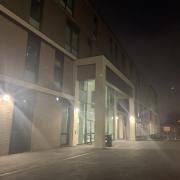
Drug use in the UK has steadily increased in the past number of years and it poses the question, 'should drugs be decriminalised?'
In 2019 the NHS found that there were 18,053 hospital admissions due to drug poisoning caused by drug misuse. This was a 6% increase to what was recorded in 2017/18 and a 16% increase in 2012/13. Also, in 2019, there were a total of 2,917 deaths due to drug poisoning which is 17% higher than in 2017 and 46% more than in 2008.
Drug use in the UK is ever increasing leaving people asking questions about what the Government plan to do.
There are a few options, however decriminalisation of drugs is becoming more popular amongst countries in recent years. Will the UK follow along?
Decriminalisation means that drugs would cease to be treated as illegal and possession would not be classed as criminal. However it does not mean they will be able to be bought by the public.
Portugal decriminalised drugs in 2001 after a spike of drug related deaths and an increase of misuse. Although drug use has been decriminalised there is still a consequence as drug use and possession is treated as an ‘administrative violation’ so is punishable with a fine or community service rather than a jail sentence. Compared to the UK, which has an unlimited fine and/or up to 7 years in prison for class A drug possession. The penalties for drug use are decided by regional boards called ‘Commissions for the Dissuasion of Drug Addiction’
Within just a few years drug related deaths have decreased and the infection rate for diseases, such as HIV, that are transmitted by blood when needles and such are shared, also decreased.
Portugal's health services encourage people with addiction to speak out and get help but if they choose not to they are not punished.
Along with the ‘radical’ drug reform the government expanded resources to areas such as prevention, treatment, harm reduction and social reintegration programmes.
In some countries around the globe, such as Canada and the US, the legalisation of medical cannabis is becoming more common. For the most part recreational use of the drug is usually legalised after. The UK government sent a few cross party MP’s to look into cannabis usage and might legalise its medical use within the next 5 to 10 years, according to the BBC.
In 2019 a group of MP’s called for an investigation into the decriminalisation of all drugs in the UK. However the government said they had no plans on changing drug laws. The Scottish National Party formally backed the plan.
A spokesperson for the Government said that decriminalising drugs will not reduce the harms they cause nor eliminate drug crime. They added that the government will tackle the supply of illegal drugs to communities to communities to stop drug abuse.
The Government are also concerned that drug addiction rates would soar particularly among the young as there would be no criminal sanctions for those caught. However if there was increased spending in education to provide to anti-drug PSE lessons in schools, it might provide students with support to avoid drugs and drug abuse. One way of doing this is by teaching that taking drugs and alcohol isn't the norm for most students, this along with other focus points will help reduce the number of those taking and abusing ilegal substances.
The MP’s have argued that it will cause a lower cost of the justice system and help ease the ever growing prison population in the UK. if the decriminalisation of the use of drugs was to happen, responsibility for the drug policies would be down to the Department of Health and Social care rather than the home office.
As drug use continues to rise in this country it is becoming more and more obvious that laws need to be repealed and replaced. If more MP’s backed the scheme and governmental research was carried out, maybe we can see some consideration to change the outdated rules.
By Oliver Palmer, Richard Challoner School




























